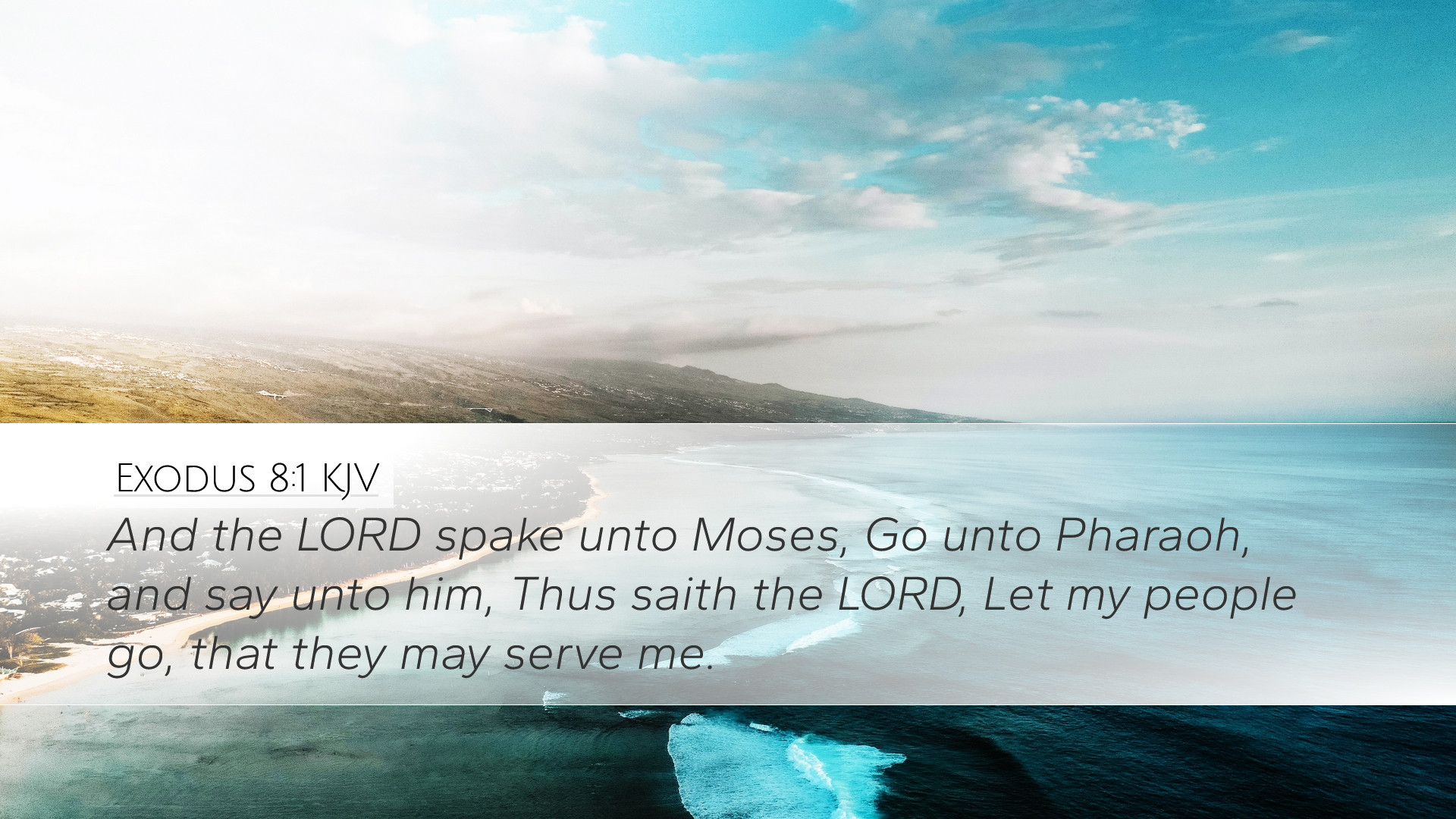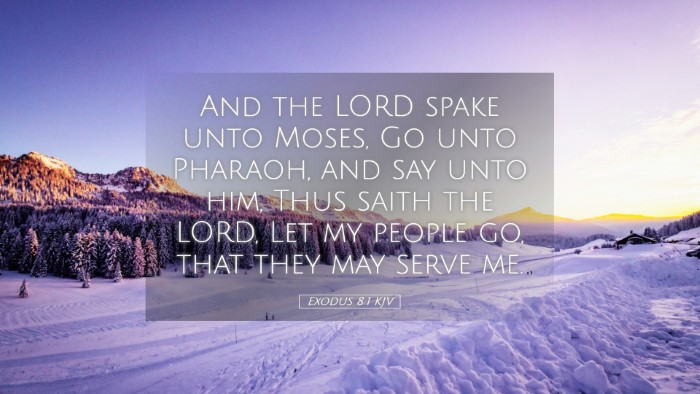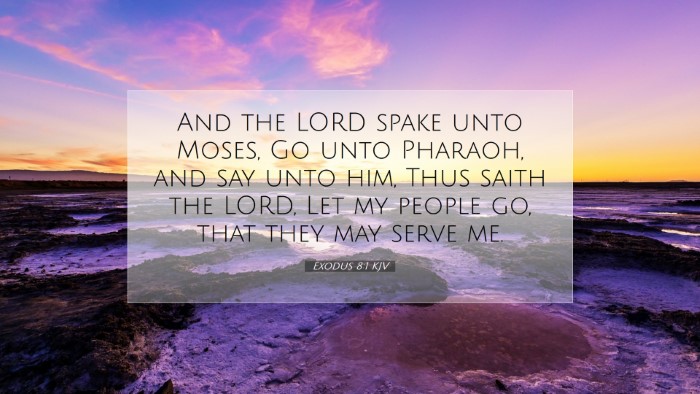Commentary on Exodus 8:1
Verse: "Then the Lord said to Moses, 'Go to Pharaoh and say to him, “This is what the Lord says: Let my people go, so that they may worship me.”'”
Introduction
Exodus 8:1 marks a pivotal moment in the narrative of the Exodus, encapsulating both the oppression of the Israelites in Egypt and God's relentless pursuit of their liberation. This verse emphasizes the divine mandate given to Moses and sets the stage for the subsequent plagues that would eventually compel Pharaoh to relent. Understanding this verse requires delving into its theological, historical, and literary significance.
The Divine Commission
God's Command to Moses
In this verse, God commands Moses to confront Pharaoh with a message that speaks of liberation and worship. This command showcases God's authority and His desire for His people to serve Him freely. The urgency of this divine mandate is palpable, as it highlights God’s active role in redemptive history.
- Matthew Henry's Perspective: Henry notes that God’s command is not merely a request but a direct order, emphasizing His sovereignty. The request for worship reflects the core of Israel’s identity as the chosen people.
- Albert Barnes' Commentary: Barnes stresses the significance of the phrase "Let my people go," interpreting it as a declaration of ownership and the call to holiness. It is not only about physical liberation but also spiritual freedom.
- Adam Clarke's Insights: Clarke emphasizes the phrase "so that they may worship me," illuminating the purpose of freedom it is not to be idle but to engage in covenantal worship, which is essential for their relationship with God.
Historical Context
This command is delivered in the context of Israel's enslavement in Egypt, a situation that highlights the themes of oppression and divine deliverance. Understanding the historical backdrop enriches the interpretation of this verse:
- Pharaoh's Hardness of Heart: The repeated refusals of Pharaoh illustrate a broader theme of disobedience to God's will. Henry notes that God permits Pharaoh's heart to harden, setting the stage for revealing His power through the plagues.
- The Role of Moses: Moses is portrayed as God's chosen instrument. His hesitations and inadequacies serve to underscore the theme that God equips whom He calls, a message of encouragement for those in ministry today.
Theological Significance
God's Sovereignty and Human Free Will
Exodus 8:1 raises essential theological questions about the nature of God's sovereignty and human free will. God commands Pharaoh's submission, yet Pharaoh's heart remains obstinate. Commentators offer various perspectives:
- Henry: He emphasizes the mystery of divine sovereignty overlaying human stubbornness. God's plan advances through Pharaoh's resistance, which serves a greater purpose in demonstrating divine power.
- Barnes: He suggests that while Pharaoh’s heart is hardened, it serves to fulfill God’s plan. The unfolding narrative illustrates that God's purposes will prevail, despite human opposition.
- Clarke: Clarke often discusses the tension between divine determination and human agency, urging readers to reflect on how God's plans unfold, even through seemingly insurmountable barriers.
Implications for Worship
The Call to Worship
The call for freedom to worship encapsulates a vital aspect of the life of faith. God desires His people not merely to live liberally but to engage in authentic worship:
- Community Worship: This event underscores the importance of communal worship. The Israelites were to come together, highlighting the unity that worship fosters among believers.
- Restoration of Relationship: The call to worship signals a restoration of relationship between God and His people. The rescue from oppression is portrayed as a means to fulfill their created purpose.
- Application for Today: As pastors and theologians reflect on this command, they are reminded of their role in guiding congregations toward genuine worship experiences, emphasizing that worship is both a privilege and a duty.
Conclusion
Exodus 8:1 serves as a powerful reminder of God’s sovereignty, the importance of worship, and the unfolding of His redemptive plan. By examining the layers of meaning embedded in this verse, pastors, students, and scholars can gain profound insights into the character of God and His relationship with humanity. The call to worship remains ever-relevant, urging believers to recognize their identity as those liberated by God’s hand.


